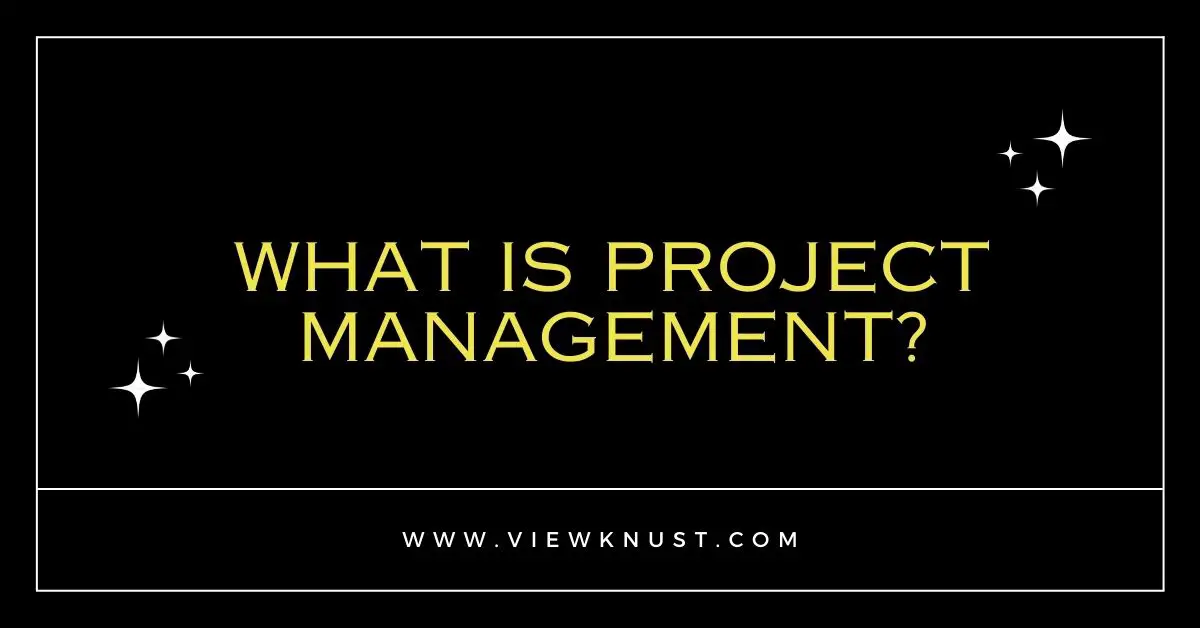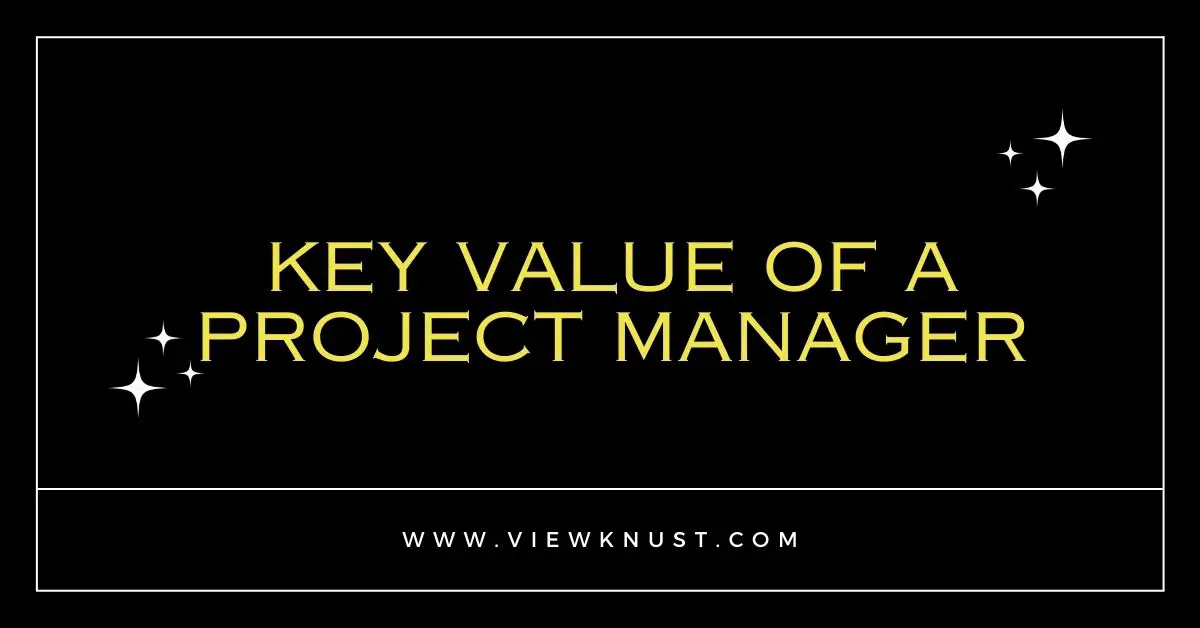What is Project Management? | The Best 1 Perspective

What’s On This Page
Your friend walks up to you and ask “what is project management?”. In most cases, your knee-jerk reaction will be to buy yourself more time to cook an answer if you don’t readily know the subject or start answering while putting thoughts together if you’re a bit familiar with the topic. I bet you’re doing one of the two right now.
I’m interested in the first scenario because that very much explains how our mind works. The most typical human thing your mind does when you have no idea is to divide and conquer. Your brain tries to borrow from what you already know, understand each individual word/syllable, and combine everything gathered to produce one logical meaning. Marvelously, it works most of the time, especially when the subject isn’t named after someone or a place.
Let us attempt it here: “Project” and “Management”. Before that, please go back and read the preface if you haven’t. It sets us up on the right stage and perspective for the entire tutorial.
Management is the noun form of the verb “to manage” which can be roughly explained as having the charge to look after, direct and make decisions about something. It makes sense because I see managers everywhere as the people who handle affairs.
I don’t know about you, but anytime I heard the word Project, I thought about an infrastructure being built. It was either buildings or roads. Later on, I transitioned to thinking of it as an undertaking – something someone was doing or has plans to do. That’s because I heard people say a lot “I’m doing a project here”, “Oh, my project is going well”, “I’m about to start a project”.
Hence, if you were to ask me “what is project management?” few years ago, I would have said “it is about managing, oh sorry, directing or handling something one has planned to do, so everything is executed on point.”. Surprisingly, this guess work wouldn’t have been that far from the right answer.
What is Project Management really?
Per a Google course on the subject, Project Management is defined as the application of knowledge, skills, tools and techniques to meet project requirements and achieve desired outcome.
Yeah, I know. That is a typical “textbookish” definition. For a better understanding, permit me to tear it down into 3 main points.
1. Application of knowledge, skills, tools and techniques.
2. Meet project requirements.
3. Achieve desired outcome.
Just from the above, we can deduce the framework for whatever falls under project management.
Looking at the point 1, it is just like saying “application of everything at your disposal”. Project Management is about leveraging all you’ve got, tangible or intangible, to achieve the desired outcome and still checking all the constraints. This includes every experience you have encountered since birth, knowledge you’ve both directly and indirectly gained, your imaginative conceptions, etc.
One important thing I want to point out is it doesn’t matter if you have in-depth technical knowledge on what the project is about, but as long as you know what to do right in order to get the job done, you will always excel as a project manager.
We keep mentioning project, but no definition has been established. Even though I did touch on it as a throwback perspective, let’s focus on it now. The textbook definition, I say, assumed you already know what a project is or, at least, the dictionary meaning, so it gave you something advanced – what a project looks like. This gives us simple criteria to pass or fail any activity as being a project or not. We can explore this checklist to understand projects and expand the conversation.
What is a project?
As said earlier, the project management definition did spell out what a project looks like. If we know the characteristics/traits of a project, then we’ll auto give meaning to it.
Point 2 talks about meeting project requirements. By inference, anyone can say every project has some requirements or constraints it needs to satisfy. This might be what separates it from an ordinary task or activity. Therefore, on your checklist to identify something as a project or not, note that this “something” must have conditions within which the result must be achieved.
Just a quick chip-in. These conditions may be unique to every project, but time and available resources will always be represented.
Moving on, Point 3 says we must achieve the desired outcome. Again, it depicts that every project comes with its specified outcome. Based on the deviation of the actual result from this imagined outlook, we can judge whether the project is a success or a failure.
Now that we are certain about projects, I believe I can now introduce you to my perspective on project management – it is a life skill and everyone needs it.
Project Management as a Life Skill.
Anytime project management, or even project, is mentioned, it is natural for people to turn their attention to the big companies or a career path those firms. That is a myth. Based on the two criteria we just identified as a project checklist, I can confidently say it’s something you do every day, whether you recognize it or not.
If a project, by what we’ve learnt, has a set of constraints and a desired outcome, then, when we look at our daily routines through this lens, each activity – from waking up to retiring to bed – can be seen as a mini-project.
For instance,
Waking Up: Are there not always conditions within which you’ve to wake up every morning? Sometimes, you feel headaches and body pains. At times, you’ve somewhere to go or something to address at a particular time and must therefore wake up within a specific time range. The desire to continue sleeping cannot be left out. These are all constraints you have to deal with in order to achieve the desired outcome which is to be fully awake and ready for the day.
It’s also because of these factors that we all think when and how we sleep are important to waking up in good moods. Is that not a project and someone trying to ensure the right thing happens? Why then do we go to the extent of planning, organizing, executing, monitoring and adjusting our daily routines to ensure our lives aren’t a mess? Are those skills not the same being displayed in work projects?
I’m sure you can agree with me when I tell you project management is closer to you than you think. The only important thing is how we can understand and implement it to get the best out of our lives, like the companies are doing to get the best out of their resources.
Conclusion
Every project is a project, whether it is large or small scale. It still is whether you are being paid for it or not. The most essential underlying basis is you have to get the right result with the given conditions. Project management will always be valuable whether it is utilized in one’s personal or professional life.
To sign out, always remember it is just like what you do in keeping your life together each day. Are you not the manager of your life?


